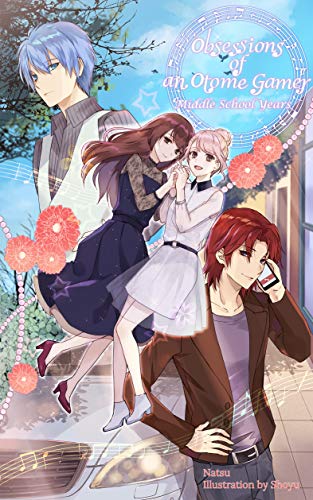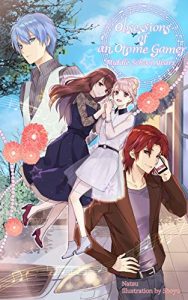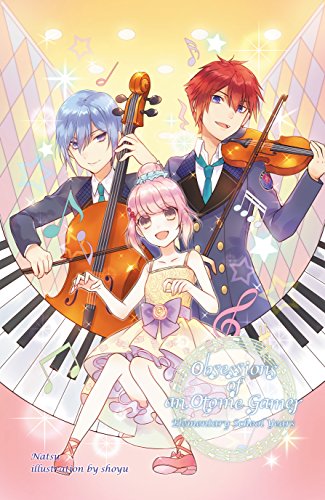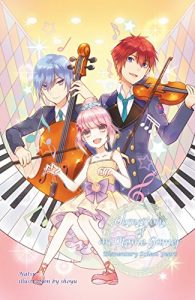By Natsu and Shoyu. Released in Japan as “Ongaku de Otome wa Sukuenai” by the author on the Syosetu website. Released in North America digitally by Cross Infinite World. Translated by Charis Messier.
The first volume of Obsessions of an Otome Gamer stunned me, both in how ridiculously long it was and also how much I enjoyed it. This second volume is not QUITE as long, though it’s still about the length of a Tanya the Evil novel. But more importantly, it develops the characters from the first book, seeing them realistically learn from their mistakes, grow and mature… well, at least as much as they’re allowed to. Even when cliches are brought in, such as the rich younger sister of one of their teachers, they’re subverted, as she turns out to be a sweetie pie rather than an “ohohohohohohoho!” sort. And of course there’s the music, as Mashiro continues to have piano, not love, as her primary focus and gives the reader a crash course in classical music as well. That said, love is creeping in there, and the volume ends in a cliffhanger that will actually be decided via poll.
The title font is slightly more readable than the first volume, though I still think pink and white against a light background needed rethinking. As for the content, well, it’s Mashiro in her middle school years. After the events of the last book, Sou is in Germany, but he still hasn’t forgotten Mashiro, and she’s writing him and sending him origami trombones (far less origami in this book, alas). Kou, meanwhile, is also recovering from the bad impression he has seemingly hammered permanently into Mashiro’s mind, and I give him credit for being incredibly patient and trying his best to get back in her good graces. Since the first book came out, I have read three volumes of My Next Life As a Villainess, and it’s interesting to contrast Mashiro with Katarina. They’re both in otome game worlds and tend towards the dense when it comes to love, but Katarina is able to heal everyone’s problems through the sheer force of being her, whereas Otome Gamer is not that idealistic.
The author notes that the original title for this story was “The Maiden Can’t Save Through Music Alone”, and that brings me to Kon and her story. It’s dramatically necessary and worth it, as otherwise this sort of story would be as light and frivolous as they come, but it really is hard not to imagine that, whichever boy Mashiro ends up with, Kon is going to die. In her previous life she essentially sold her soul to Satan, and he’s in this book enjoying her despair and torment, despite the occasional setback (Mashiro recovers her past-life memories because, due to the game mechanics, she and Kon have maxed out their love and trust in each other). I would love to be proved wrong, but even Mashiro’s narrative has a lot of “I didn’t know it at the time, but…” that almost always signifies someone’s doomed. This sucks, I love Kon.
There are books for both boys being prepared, and there’s a poll that the publisher has put up so that readers can vote for which one gets published first. No, there isn’t a Kon Ending that I know of, though I do wonder if we’ll see a Bad End as an extra. In the meantime, fans of the first book and novels in this “otome game reincarnation’ genre will want to read this as fast as possible. And hey, why isn’t the publisher creating playlists of the songs for Spotify?



